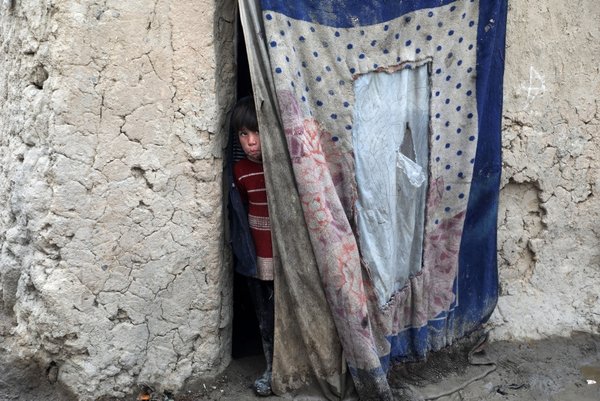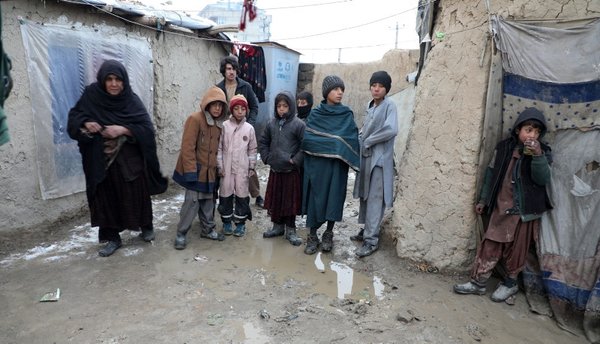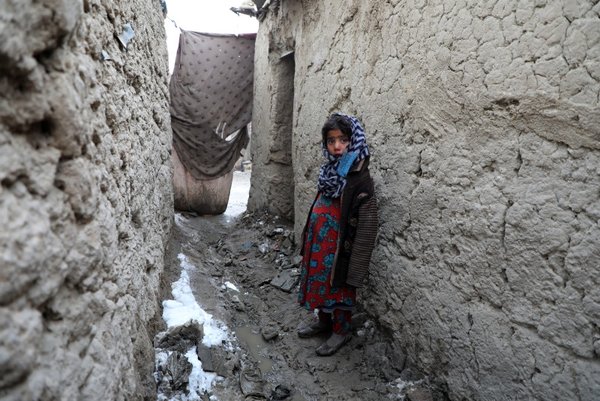Lacking food and fuel, Afghan people are in dire need of humanitarian assistance amid freezing weather that has caused dozens of deaths.
As Afghanistan goes through one of its harshest winters in years, the central and northern parts of the country have been hit the hardest by freezing weather conditions.
Authorities announced that at least 157 people have frozen to death so far, especially in the provinces of Gor, Badahshan, Paktika, and Paktiya.
They also said that more than 75,000 cattle have perished in the cold.

Temperatures dropped to as low as -10 degrees Celsius (14 degrees Fahrenheit) at night in the capital Kabul, while some regions saw -30 C.
Power outages have left many homes with no electricity for hours on end due to the inability to meet the rising demand in cold weather.
Even the city center in Kabul has only been getting up to 10 hours of electricity per day.
The lack of official record keeping in the countryside has raised fears that casualties due to the freezing weather conditions might actually be higher than announced.
Transportation issues caused by the weather, make it difficult for humanitarian organizations to deliver aid to families in need.
Around 28 million people, almost two-thirds of the country's population, are in need urgent assistance, according to UN data.
Anadolu visited families in dire need of humanitarian assistance in the Kamber area of Kabul, home to around 1,200 families.
Families of an average six to eight people living in single-room homes of up to 10 square meters (about 108 sq feet), struggle to protect themselves from the cold, particularly at night. Most houses lack the most basic household items, including stoves, while those that do have great difficulty finding fuel.
Children scatter around the streets of the capital in the early morning, some begging, while others work as shoeshiners or water, pen, or handkerchief peddlers, trying to help their families make ends meet.
Survival has become a daily struggle in Kamber amid the freezing weather.
Rajab Gul, who came from Kandahar with her husband and six children two years ago and settled in Kamber, said that when she woke up one morning two months ago, she found her husband's lifeless body.

Now, her children are begging on the streets, she said, adding that this was how they eked out a living.
Gul said they go to their neighbor's house, where there is a stove, to warm up, and return home to sleep in the cold winter nights.
"If we find a piece of dry bread, we eat it. I haven't eaten anything today. We're hungry," she said.
"I have six children. I don't have a stove or a blanket. I have nobody but God. I have orphans, I ask for help. We have nothing."
Abdurrahman Otmanhil, another resident of the area, said he used to earn daily wages, but now could find no work.
Otmanhil, who lives in a one-room house with his 12 children, said: "We ask authorities to create job opportunities. We don't want anything other than that. Occasionally, some aid organizations come and help, but it isn't enough. It gets very cold in the evenings, we get cold."
Economic crisis has also deepened in Afghanistan, with the great majority of people unable to buy firewood to burn.
Ajmal Hanifi, a wood seller in Kabul, said the market had shrunk severely, with prices increasing and people buying less firewood.
"A ton of firewood was $140 last year. This year, a ton of firewood was $180. They (customers) do purchase, but very little ... The economy has contracted this year," he said.

Coal merchant Abdulgaffar Rahimi said that some people only bought one or two kilograms of coal, while others only asked the price.
He said: "Last year, a ton of coal was $120. This year, it's $200. Those who bought half a ton last year can now only get a third."